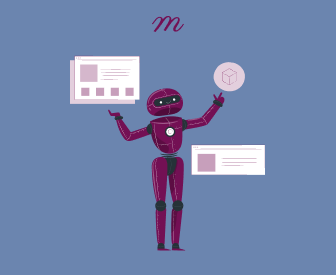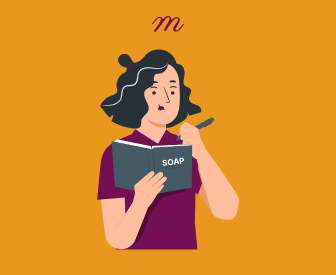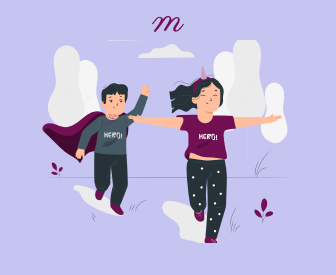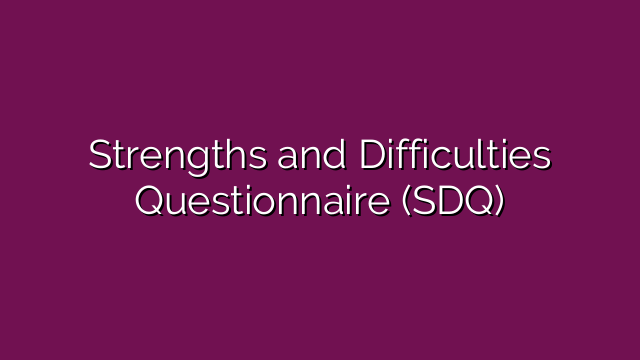Have your progress notes written for you automatically
For a long time, therapists have taken notes by hand during therapy sessions. However, this traditional method can be overwhelming and time-consuming. To address this, AI clinical note generators were introduced to help therapists save time and improve productivity. These tools assist therapists in writing progress notes and managing their documentation more efficiently.
Some therapists prefer Manual Note-Taking and doubt the effectiveness of AI Clinical Notes. They question whether AI-generated notes can truly benefit mental health practitioners. This article compares AI Clinical Notes and Manual Note-Taking, showing their advantages and disadvantages. It will provide a clearer understanding of both methods so, you can decide which best suits your practice.
What are AI Clinical Notes?
AI Clinical Notes helps to convert words spoken during therapy sessions to a written document. Therapists can record their sessions with their clients using AI Clinical Note tools. This enables mental health professionals to pay attention to their clients without the need for constant pauses during therapy sessions.
Therapists can also dictate their notes to the AI note taking assistant after consultation with their clients. Mental health therapists can choose either of the options or both having considered their clients’ privacy.
In the case where a therapist uses AI Clinical Notes to record during the therapy sessions, consent from the clients is required.
Advantages of AI-Powered Clinical Notes
- Reduced Administrative Work: AI Clinical Notes have helped therapists reduce the time they spend on writing notes. It has also helped them organize their notes without affecting their efficiency. This is a great advantage for therapists, as it helps them focus more on their clients rather than on note-taking.
- Easy Access: Therapists who have hand strain from excessive Manual Note-Taking can access AI Clinical Notes with ease.
- Increased Efficiency and Accuracy. With the use of AI Clinical Note-Taking tools, therapists have standardized templates that are structured to ensure accurate documentation. In the case of writing notes for insurance billing, the AI Clinical Note-Taking tool ensures that all information needed is provided to avoid rejections of claims.
- Time Saving: The use of AI Clinical Notes helps save time for mental health practitioners. It provides automatic generation of notes for therapists which helps therapists manage time compared to Manual Notes-Taking.
Disadvantages of AI Clinical Notes
- Mental health practitioners still need to check and edit their notes after it has been AI-generated. This can be due to possible errors, omissions or contextual accuracies.
- It cannot generate notes based on the therapist’s professional judgment.
- It needs a stable internet connection. Documentation and workflow may be delayed as a result of poor internet connection.
- It requires compliance with privacy laws like HIPAA. This is to ensure that the information of clients is well secured.
Features of AI Clinical Notes
Therapy Session Recording: It gives room for you to record your sessions with your client in person, online or hybrid. With an AI Clinical Note App like Mentalyc, you can also record call sessions.
Audio Transcription: AI Clinical Notes tools will transcribe your therapy session with your clients. However, it does not record your sessions or capture your entire conversation with your clients. It provides a summary and analyzes the notes you have taken.
Dictation feature: It has a dictation feature where you can tell it what to do or take note of as it assists you during therapy sessions. You can instruct it to add to a particular part of a session or delete it. If you forgot to record a session, you can dictate or describe the session. The AI tool will create a well-structured intake or progress note for you.
Note Templates: AI Clinical Notes provides progress note templates that depend on your subscription. It includes SOAP (Subjective, Objective, Assessment, and Plan), and DAP (Data, Assessment, and Plan). They help record clients’ information in a well-structured format and evaluate their progress.
Therapist Reviews of AI Clinical Notes
Some mental health therapists have doubts about the effectiveness of notes generated by AI. One of my colleagues, a mental health therapist, always relied on manual note-taking for her therapy sessions. She was initially skeptical about using AI for note generation and found herself overwhelmed with organizing her notes, leaving little time for personal obligations.
After trying AI Clinical Notes, she reached out excitedly to share her experience. She found that the time she spent on paperwork had reduced. She finds documentation easy and has more time to focus and care for her clients. She now uses AI for her note-taking and sees it as a helpful tool she can modify to her expertise and experience. While she still makes edits when needed, she finds the AI-generated notes to be a great starting point, boosting her efficiency overall.
Other therapists found AI Clinical Notes as a support tool. They can use AI to generate notes, review them, and explore all the customization options.
What is Manual Note-Taking?
Manual Note-Taking is the traditional method of recording therapy session notes by hand. Mental health practitioners observe their clients’ behaviors and expressions during sessions and document them. Some therapists either take notes either during or after the session. The following are typically included in a therapist’s note:
- Client Information
- Presenting Problem
- Session Focus/Goals
- Interventions Used
- Client’s Response
- Progress Toward Goals
- Therapist’s Observations
- Plans for Future Sessions
- Homework Assignments
- Risk Assessment
- Summary/Closing Remarks
Advantages of Manual Note-Taking
- Therapists can record unique notes for each client. They ensure to reflect the observation of their emotions and expressions.
- Taking notes by hand during therapy sessions limits the possibility of privacy violations.
- Manual Clinical Note-taking helps therapists to think back on the sessions with their clients. This makes it possible for therapists to have a better understanding of their client’s progress.
Disadvantages of Manual Note-Taking
- Manual Note-taking affects the flow of the therapy sessions. While therapists take breaks to write down notes, clients might become disengaged.
- It takes more time to take notes manually compared to AI Clinical Notes.
- Writing notes for each therapy session can be very tedious.
- Therapists who rely on their memory to record their past interactions with their clients might forget important details. They might also leave out some information in their notes
- Mental health practitioners may find it difficult to properly organize session notes and find them when needed.
Comparison Features of AI Clinical Notes vs. Manual Note-Taking
This section shows the differences between using AI Clinical Notes and Manual Note-Taking.
| Features | AI Clinical Notes | Manual Note-Taking |
|---|---|---|
| Quality | Accurate session transcription is possible with AI Clinical Notes. However, inaccuracies may need to be manually checked. | It provides accuracy and expertise, but it may be affected by the therapist’s fatigued state or forgetfulness. |
| Personalization | AI-generated notes follow well structured, customizable templates. | It enables complete customization according to the needs of the client and the therapist’s note-taking method. |
| Privacy of Clients’ Information | The AI Clinical Notes platforms that comply with HIPAA guarantees confidentiality and security of client data. | Manual Notes-Taking is usually safer if kept in confidential, secure files and storage location. |
| Effectiveness | It reduces the amount of time spent on documentation by automating note-taking. | It takes a lot of time and often calls for additional hours outside of client engagements. |
| Cost | Most artificial intelligence (AI) tools are subscription-based. While some are free to use, others are more pricey. | It is free, but therapists spend more time on paperwork. |
| Understanding Client Experience | AI might not be able to accurately convey nuances related to verbal cues, expressions, or emotions which could lead to poor client judgement. | Manual note-taking ensures the client’s record is thorough and detailed. It captures the nuances of the client’s experience. |
| Integrating Practice Management Software | Workflow is made simpler by the integration of various EHR systems with AI Clinical Notes. | It requires manual data entry and does not easily integrate with PMS, which adds to the workload. |
Conclusion
Using AI-powered note generators provides an easy solution for therapists who are overwhelmed with taking notes in the conventional way. Mental health therapists who choose to pay attention to their clients while receiving help with documentation can opt for AI Clinical Notes. Manual Note-Taking might be a good option for therapists who prefer to deal with the paperwork.
In recent times, therapists are able to integrate AI tools into their documentation process. These tools allow for customizations so therapists can adapt the notes templates to reflect their style and professional judgment. Therapists can now find a balance between using both AI and human skills to achieve efficient progress notes.
For therapists who want to experience stress-free note-taking with AI, Mentalyc is well-known for its accuracy and efficiency. It provides excellent summaries of your therapy sessions.
Frequently Asked Questions
Can AI Clinical Note-Taking Completely Replace Manual Note-Taking for Therapists?
It is not entirely true. Although, AI can assist therapists with note-taking, mental health therapists still need to review and edit the notes for accuracy and quality. If necessary, therapists can also include their insight and judgement based on a deeper understanding of the client.
How Does AI Clinical Notes Integrate Into My EHRs?
AI Clinical notes integrate into the EHR system by using tools that process audio recordings, transcribes and organizes the information. Therapists who use the best EHR software for their practice enjoy accurate and well structured documentation.
What Are The Effects of Using AI for Clinical Notes?
Mental health therapists may sometimes face challenges like inaccuracy or misinterpretation when using AI Clinical notes. Therapists who do not review the AI-generated notes after their sessions can end up relying on incorrect information.
Are AI-powered Notes Generators HIPAA-Compliant?
It depends on the choice of AI-powered generator selected. Mental health therapists must ensure that the AI tool they use is HIPAA-compliant and follows data protection laws.
How Can AI-powered Note Generators Help Therapists?
AI technology tools help therapists to record or transcribe audio therapy sessions, produce and summarize accurate progress notes. It helps to reduce stress related to documentation and improve therapists’ workflow.










